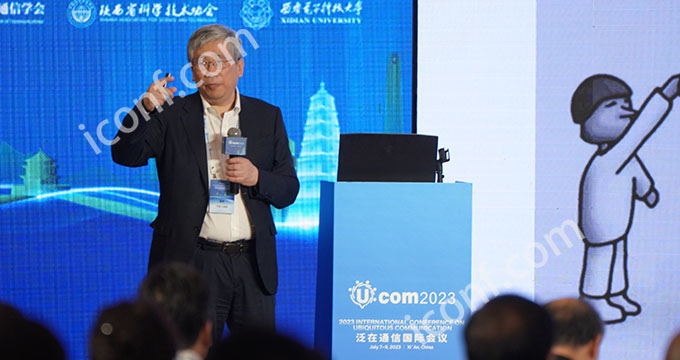

490 views||Release time: Dec 17, 2024
After attending an academic conference, effective follow-up is key to converting your interactions into long-term academic and professional relationships. This stage can significantly enhance the value of your conference experience. Below are essential strategies for following up after an academic conference.

Once the conference is over, take some time to review your notes, handouts, and the materials you collected during the event. This will help you recall important conversations, ideas, and potential collaborations.
Key Takeaways:
Highlight the key insights, new ideas, or innovative research that you learned during the conference. Organize these takeaways for reference or future exploration.
Categorize Contacts:
Go through the business cards, notes, or LinkedIn profiles of people you met. Categorize them based on the potential for collaboration, mentorship, or networking opportunities.
One of the most important actions you can take is to send personalized follow-up emails to those you connected with during the event. A thoughtful email can reinforce the bond you created and open doors for further discussions or collaborations.
Timeliness:
Send follow-up emails within 2–3 days after the conference while the event and your conversations are still fresh in everyone's mind.
Structure of the Email:
Example Email:
Subject: Great to Meet You at [Conference Name] – Follow-Up
Dear [Name],
I hope you are doing well. It was a pleasure meeting you at [Conference Name] and discussing [specific topic discussed]. I found our conversation on [specific research or topic] insightful and would love to explore it further.
As we discussed, I am attaching the link to my recent research paper on [related topic] for your review. I believe it could complement some of the ideas you presented during your session.
I look forward to staying in touch and potentially collaborating in the future.
Best regards,
[Your Name]
Academic conferences are excellent opportunities for expanding your professional network. Connecting on platforms like LinkedIn can help solidify these new relationships.
Send a Connection Request:
Send LinkedIn connection requests to people you met at the conference. Personalize your request with a short note, such as:
"It was great meeting you at [Conference Name]. I'd love to stay connected and continue our discussion on [topic]."
Engage with Their Content:
After connecting, stay active by engaging with their posts, sharing insightful articles, or commenting on their research. This helps maintain the relationship and can lead to future collaborations.
Sharing relevant materials is an excellent way to stay engaged with your conference contacts. If you come across useful papers, articles, or datasets, send them to individuals who might benefit.
Share Your Work:
If you presented a paper or poster at the conference, share it with those who showed interest. You can send them the full paper, presentation slides, or additional resources.
Send Relevant Resources:
If you learned about a helpful tool or research finding that could aid someone’s work, share the link or details with them. This shows that you are contributing value, not just asking for something.
If you discussed potential collaborations, job opportunities, or research projects at the conference, make sure to follow up on these leads.
Set Up a Meeting:
If you agreed to have a more in-depth conversation, suggest a time for a call or meeting. Use tools like Calendly or Google Calendar to easily schedule follow-ups.
Collaborative Opportunities:
If you talked about possible research collaborations, suggest specific next steps, such as co-authoring a paper, working on a joint project, or sharing datasets.
Job/Internship Opportunities:
If you were made aware of any job or internship openings, follow up by expressing your interest and asking for more details on how to apply.
Many conferences have post-conference discussions or online communities where participants can continue networking and exchanging ideas. Engage in these platforms to keep the momentum going.
Join Online Groups:
Participate in Slack groups, Facebook groups, or LinkedIn communities related to the conference. Contribute by sharing ideas, asking questions, or providing feedback on others' research.
Attend Webinars or Post-Conference Events:
Conferences may host webinars, virtual roundtables, or follow-up events. Attend these to continue networking with the same audience and stay informed about the latest developments in your field.
Building lasting academic relationships requires ongoing effort. Set reminders to follow up periodically with the people you’ve met.
Schedule Regular Check-ins:
Use a tool like Google Calendar to set reminders to reach out to key contacts every few months. A simple "hello" or an update on your work can keep your relationships warm.
Offer Help or Resources:
If you come across a resource or event that would be useful to your contacts, don’t hesitate to share it. Offering assistance or information can solidify your professional reputation as someone who adds value.
Take some time to reflect on the overall conference experience. Evaluate the presentations, your network, and what you learned. Consider the following:
What Went Well:
Identify aspects of the conference that were particularly beneficial, such as key networking sessions or breakthrough research discussions.
Opportunities for Improvement:
Assess your own performance, particularly if you gave a presentation. What went well, and what could be improved for next time?
Actionable Insights:
Reflect on how you can apply the new knowledge and connections to your current research or future academic endeavors.
Effective post-conference follow-up is an essential part of the conference experience. By sending personalized emails, connecting on professional networks, sharing resources, and staying engaged, you can maximize the value of your conference interactions and lay the foundation for future academic collaborations and opportunities.
Stay connected and informed about the latest academic events by visiting iconf.com. Discover new opportunities to share your research, meet experts, and expand your professional network.
Join iconf.com today and take your academic journey to the next level!